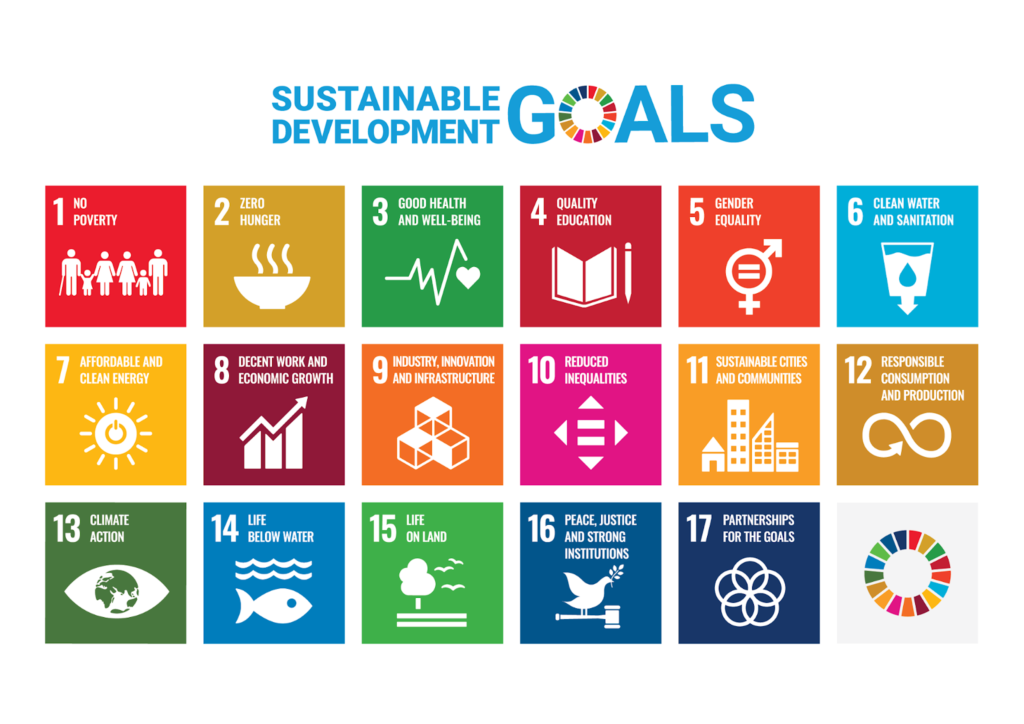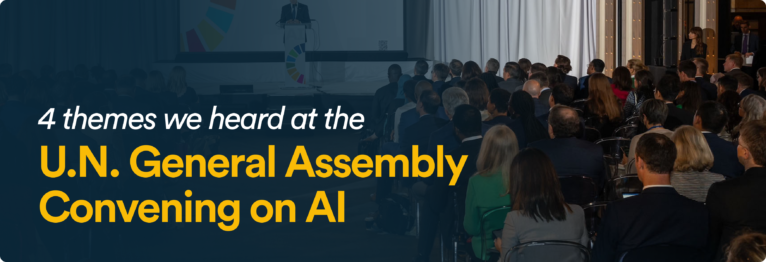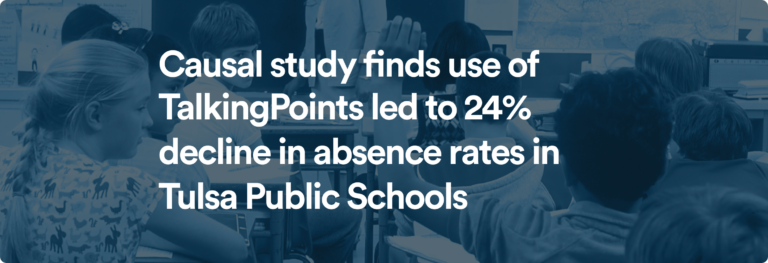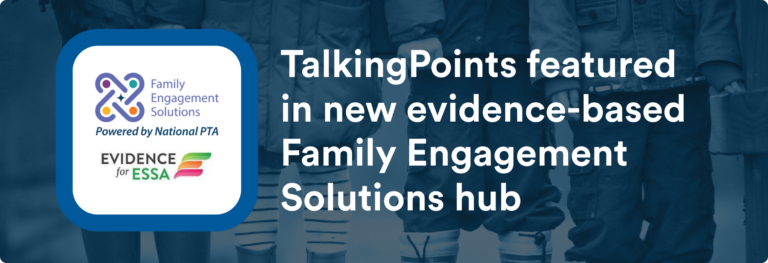by Tyson Jurgens
On September 18, 2023, TalkingPoints had the privilege of attending and presenting at a special convening as part of the United National General Assembly titled Artificial Intelligence for Accelerating Progress on the Sustainable Development Goals: Addressing Society’s Greatest Challenges, co-convened by
- Japan
- The Republic of Kenya
- The Kingdom of Morocco
- The Republic of Singapore
- The Kingdom of Spain
- The United Kingdom
- The United States of America
Invited by Google.org (a long-time TalkingPoints supporter and funder), TalkingPoints President Claudine Ryan and I shared how TalkingPoints uses AI to serve the needs of the nation’s students and families, particularly those that are perennially the most vulnerable and least served.
The UN’s Sustainable Development Goals
Over the course of the afternoon, delegates from the above nations shared their perspectives on the future of AI and opportunities for this cutting-edge technology to make meaningful progress against the UN’s 17 Sustainable Development Goals, or SDGs. These 17 goals were established in 2015 to communicate a shared commitment by the world’s nations to improve the lives and well-being of everyone on the planet.

A few key themes arose during the speeches and presentations, with important ramifications for governments, private firms, academic institutions, non-profits, and NGOs. Here are four key themes that stood out for me:
1. The world’s biggest challenges require the world’s best technological innovations
According to the international delegations, we have a long way to go in making sufficient progress toward the 2030 Sustainable Development Goals. But new and emerging AI technologies have the ability to unlock human potential as fast as they’re being developed.
Multiple speeches and demos at this summit focused on AI’s enormous potential in solving some of humanity’s most pressing challenges. In India, AI is helping cotton farmers identify pests daily and plan cost-effective mitigation measures. In West Africa, students are accelerating their studies with the help of a virtual math tutor via WhatsApp.
It was clear that TalkingPoints was in good company with fellow organizations dedicated to helping strengthen communities and improve lives. While there were AI organizations focused on making an impact across the SDGs, an outsized number focused on education and ensuring students across the globe have the chance to learn. Having used AI to this end for years—helping schools and families form relationships across language and technology barriers—it’s great seeing other organizations explore ways to use AI technology to help students and families thrive.
2. AI can help mitigate—or exacerbate—inequality
The extraordinary power of technology to reduce inequality and level the global playing field—while recognizing the real possibility of these technologies to compound inequalities or exacerbate bias—came up multiple times. Speakers mentioned common, best-practice ways organizations can mitigate these risks, such as involving underrepresented groups early in the design process.
It’s heartening that governments and private organizations are thinking of ways to harness AI’s power responsibly. As a nonprofit that has built a universally designed way for schools and families to strengthen their partnership to support students’ success, we know first-hand the power of well-designed, equitable technology that promotes universal access. When AI tools enable a level playing field, everyone wins.
3. Our high-tech AI tools need a low-tech front-end
The AI tools of tomorrow can’t hope to make a meaningful impact on communities with the greatest need if they remain inaccessible. With around two billion people still not connected to the internet, the incredible power of these AI solutions must be available for interaction through the most low-tech, simple interfaces possible.
Rather than relying on supercomputers in every home or town, we need to transfer the power of AI technology to simple-to-use technologies like SMS texting, WhatsApp, or other commonly used interfaces with low barriers to entry. That’s precisely why we at TalkingPoints built our Universal Family Engagement platform as an SMS-first tool that offers a zero-entry solution for families. By focusing on the most ubiquitous technologies families know and use, we can significantly scale the number of families who can meaningfully participate in their child’s educational journey by partnering with their schools and teachers.
4. Transformation involves everyone from governments to industry to academia to NGOs
Throughout the day, if there was one theme reiterated more than the rest, it was that organizations must partner to solve these significant societal challenges. No one institution can provide the complex solutions necessary to tackle these SDGs head-on, and every kind of organization plays a key role in bringing scalable solutions to communities around the world.
Governments must set policies, provide incentives, and sensibly regulate technologies and data practices. Private industry must invest in research and development to stay ahead of the competition and provide real value to their users and stakeholders. NGOs and nonprofits like TalkingPoints must advocate for the communities with the greatest need and provide mission-aligned, scalable solutions. Academic institutions must prepare the next generation of scholars and scientists to continue to make advances that benefit everyone.
If we’re going to make real progress against the UN Sustainable Development Goals by 2030, each sector must do its part to advance our common good, especially when it comes to harnessing the potential of AI.



